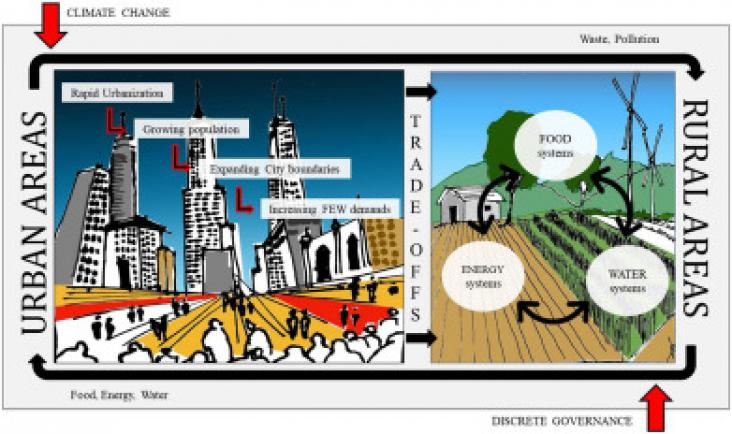This Special Issue, bringing together articles from Science of the Total Environment; Renewable and Sustainable Energy Reviews; Ecological Modelling, and Resources; Conservation and Recycling, highlights the increasing understanding that major systems servicing human well-being, food, energy and water (FEW) systems are inextricably connected, and any attempt to address one dimension in isolation of the others will lead to unexpected, undesired, and far from optimal consequences. Considering these three systems holistically as the Food-Energy-Water Nexus directly considers Sustainable Development Goals 2 (zero hunger), 6 (clean water and sanitation), 7 (affordable and clean energy), 9 (industry, innovation and infrastructure), and 12 (responsible consumption and production).
Nanomaterials Applications for Environmental Matrices - Chapter 4 - Microbe Decontamination of Water
Nanomaterials Applications for Environmental Matrices, 2019, Pages 151-185
This book chapter advances SDG 6 and 14 by reviewing the advances in research for nanomaterials for water disinfection to help with water security and combat pollution.

This article highlights the winning proposals of the fourth edition of the Elsevier Foundation Green & Sustainable Chemistry Challenge. The winning proposals were chosen for their innovative green chemistry aspects and their large positive impact on the environment, contributing to SDGs 6, 13 and 15.
This chapter advances SDG 3 and 6 by explaining that groundwater quality is mainly affected by water-rock interactions, intensive agricultural activities, and the anthropogenic activity in the study area.
This chapter explores the use of geographical information systems (GIS) and statistical approaches to determine the extent of fluoride contamination in groundwater (SDG 6).
Elsevier,
K. Brindha, Michael Schneider; GIS and Geostatistical Techniques for Groundwater Science, 2019, Pages 179-196
This chapter contributes to SDG 6 by describing the various sources and selected contaminants that pollute urban groundwater.
This book chapter advances SDGs 6, 10 and 11 by discussing our vulnerability to water disasters to help us avoid some of them in the future.
This study quantified antibiotic and antibiotic resistance gene (ARG) concentrations in hospital and communal wastewaters as well as the influents and effluents of the receiving urban wastewater treat

This study identifies the key barriers to operationalizing FEW nexus at ground level and underlines the need for urban-rural shared perspectives in resource management.
Each year the RELX Environmental Challenge is awarded to projects that best demonstrate how they can provide sustainable access to safe water or sanitation. Projects must have clear practical applicability, address identified need and advance related issues such as health, education, or human rights. Applications close on 7 June 2019.
